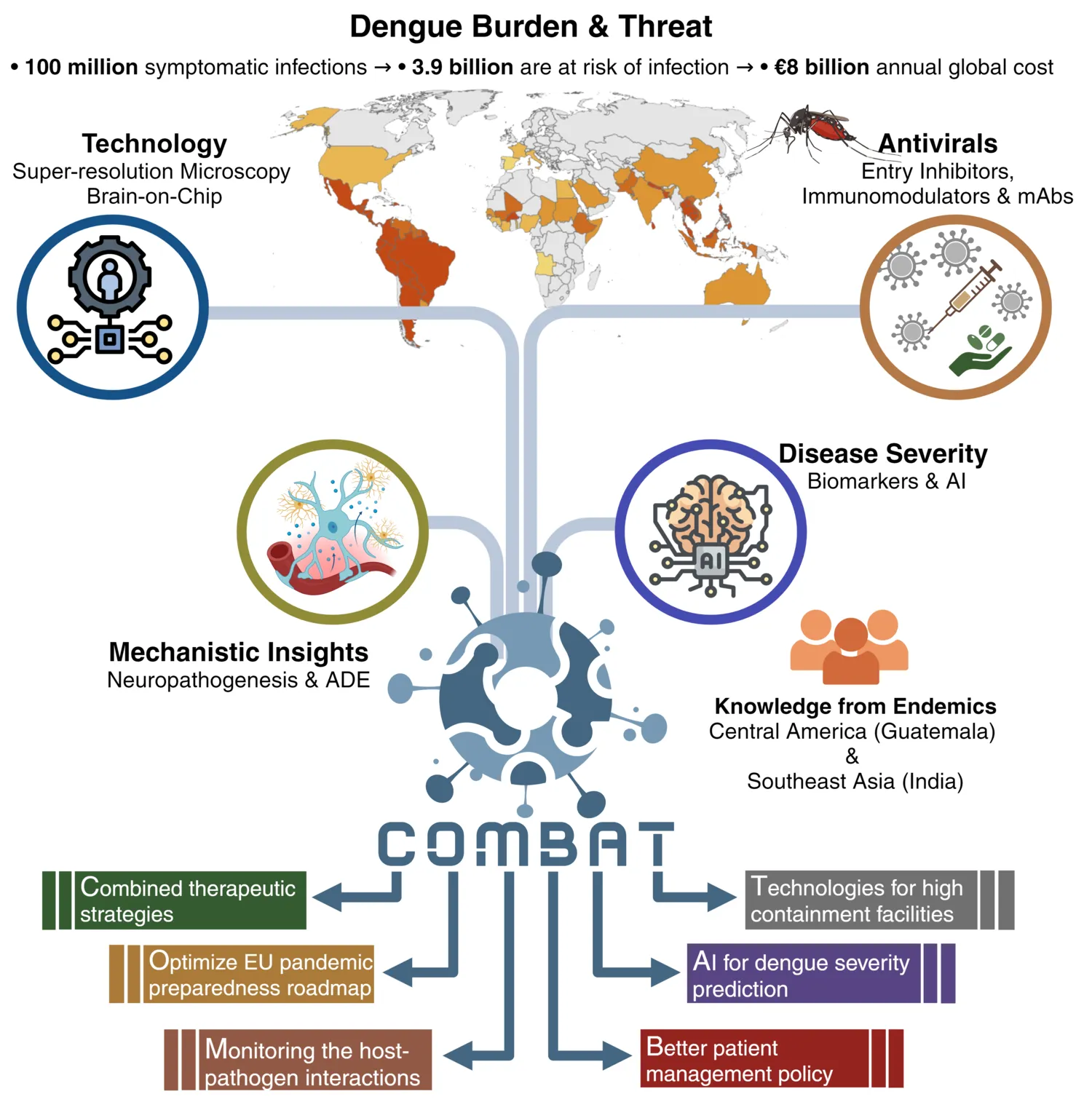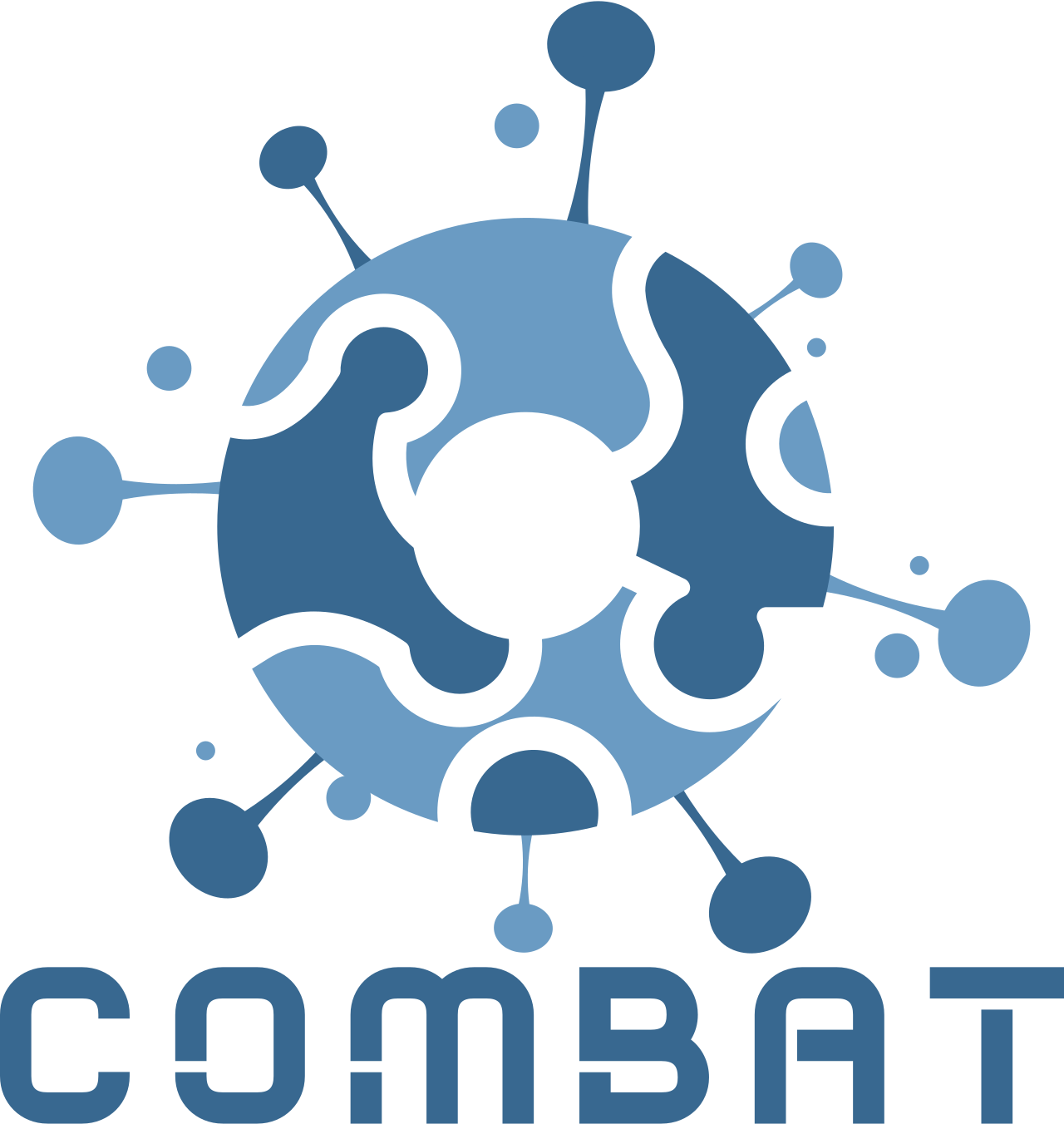React4Life is proud to announce its participation in the EU-funded COMBAT project, coordinated by Karolinska Institutet, aimed at addressing the global dengue epidemic. Dengue fever, a mosquito-borne viral infection, continues to rise in incidence, especially in tropical and subtropical regions, posing a significant public health threat. With no specific antiviral treatment currently available, the need for innovative strategies to combat the disease is more critical than ever. The COMBAT project aims to enhance our understanding of dengue’s complex pathology and develop more effective treatments by employing cutting-edge technologies that provide a deeper insight into the virus’s behavior and human immune response.
At the heart of this groundbreaking initiative is React4Life’s MIVO® (Multi In Vitro Organ) platform, which plays a crucial role in advancing the project’s objectives. MIVO® is an advanced organ-on-chip technology that replicates the functions of human organs in a controlled, dynamic microenvironment. This technology enables researchers to model human physiological responses to dengue infection with unprecedented accuracy. By simulating the intricate interactions between the virus and human cells, MIVO® provides a more reliable alternative to traditional animal models, which often fail to replicate the complexity of human diseases. Through this system, scientists can observe how the virus spreads, interacts with various tissues, and triggers immune responses in real-time, offering new insights into its pathogenesis.
In the context of the COMBAT project, MIVO® is used to explore the host-pathogen interactions between dengue and the human immune system.
It helps researchers better understand the progression of severe dengue symptoms, such as high fever, bleeding, and organ failure, by studying the role of immune cells and cytokine storms, which are often associated with severe cases. Additionally, MIVO® technology allows for the simulation of critical physiological conditions, such as the blood-brain barrier, which is crucial for understanding the neurological impacts of dengue, including the risk of neuroinvasion. This ability to study the virus’s effects on human tissues at multiple levels is integral to advancing therapeutic development.
A key advantage of the MIVO® platform is its capacity to evaluate antiviral compounds and vaccines under more physiologically relevant conditions than traditional in vitro models or animal studies. By providing a more accurate representation of human biology, it accelerates the screening of potential antiviral agents and therapeutic strategies, identifying promising candidates for further clinical development. Researchers can test various drug combinations and interventions, optimizing them for efficacy and safety before moving on to clinical trials. This can significantly shorten the development timeline for new therapies, which is crucial in the fast-paced response required during dengue outbreaks
Highlights of the COMBAT Project:
- Pioneering Antiviral Strategies Against Dengue
COMBAT develops innovative antiviral treatments to reduce the severity of dengue infections and offer new hope in the fight against this global disease. - Deepening Understanding of Dengue Pathogenesis
The project explores dengue’s complex pathogenesis at the cellular level, using advanced technologies to uncover how the virus impacts human hosts. - Policy Development for Dengue Threats in the EU
COMBAT creates comprehensive dossiers to guide policymakers and stakeholders in addressing the growing dengue threat within Europe. - Establishing an EU Pandemic Preparedness Hub
COMBAT creates a state-of-the-art technology hub focused on pandemic preparedness, using dengue as a model to ensure rapid and effective health crisis responses.

The consortium
- Karolinska Institutet (coordinator), Sweden
- Lund University, Sweden
- Stichting Amsterdam UMC, Netherlands
- The Arctic University of Norway (UiT), Norway
- Justus Liebig University Giessen, Germany
- Bio Box Guatemala ONG (BBG), Guatemala
- React4life S.p.A., Italy
- Olink Proteomics AB, Sweden
- Chip NanoImaging AS, Norway
- University of Missouri, US (Associated Partners)
The COMBAT project is also a key initiative under the India-EU cooperation on research & innovation (R&I) with five associated partners from India.


